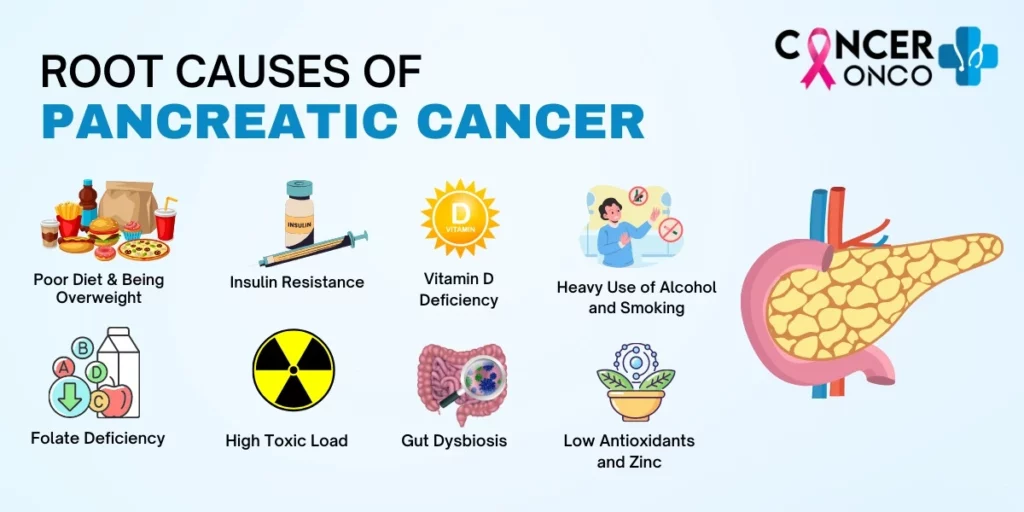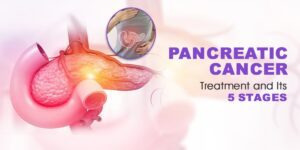Pancreatic cancer is a serious, rapidly-growing type of cancer that often goes undiagnosed and untreated. There are many ways to detect pancreatic cancer early on before the tumor spreads. Even in its early stages, treatment of pancreatic cancer can be done with surgery, chemotherapy, and/or radiation. However, there is no effective way to reverse the course of the disease once it has spread. The purpose of this article is to cover all aspects of pancreatic cancer so that you know what to expect and what you should do if you think you or someone close to you has this disease.
Overview of Pancreatic Cancer
Pancreatic cancer is a type of cancer that arises from the pancreas. The pancreas is a small organ in the digestive system that helps to digest food. Pancreatic cancer most commonly affects people over the age of 50, but it can also occur in people of any age. Pancreatic cancer is usually diagnosed after someone has had several signs and symptoms of pancreatic cancer, such as jaundice (yellowing of the skin and eyes), abdominal pain, and loss of appetite. Treatment of pancreatic cancer typically involves surgery to remove the tumor and other treatments such as chemotherapy or radiation therapy. There is a very low chance of curing pancreatic cancer, but treatment can help people live longer with the disease.
How was it discovered?
Pancreatic cancer is a serious disease that occurs when the pancreas (a gland in the stomach) begins to produce abnormal amounts of pancreatic enzymes, which can cause cell damage and cancer. Pancreatic cancer is most commonly found in people over 65 years old, but it can also occur in people of any age. Symptoms of pancreatic cancer may include abdominal pain, jaundice (yellowing of the skin and eyes), weight loss, and diarrhea. If you experience any of these symptoms, see your doctor as soon as possible.
The main symptom of pancreatic cancer is often a change in appetite or flatulence (frequent gas). Other symptoms of pancreatic cancer may include severe abdominal pain, jaundice (yellowing of the skin and eyes), weight loss, nausea and vomiting, diarrhea, or constipation. If you have any of these symptoms, see your doctor immediately.
It is important to get screened for pancreatic cancer early because it is a relatively rare disease and there is no known cure at this time. Screening for pancreatic cancer includes having a blood test to measure levels of the enzyme called amylase in your blood. If your level is high enough, you may be referred for surgery to remove part or all of your pancreas. Treatment of pancreatic cancer depends on the stage of the disease. Early-stage tumors are typically treated with chemotherapy or radiation therapy alone, while late-stage tumors require more aggressive treatment such as surgery
Root Causes of Pancreatic Cancer

The pancreas is a small organ located near the stomach. It is responsible for producing digestive juices and hormones. Pancreatic cancer (PC) is the most common form of cancer in the United States, with an estimated 20,000 new cases diagnosed each year.
There are many causes of PC, but the most common is exposure to toxins and carcinogens (cancer-causing substances). Risk factors for PC include:
• Being overweight or obese
• Having a family history of pancreatic cancer
• Smoking
• Drinking alcohol excessively
• Having a diet high in red meat and processed foods
Pancreatic cancer is treatable if it is diagnosed early. Treatment often includes surgery, chemotherapy, and radiation therapy. If cancer has spread to other parts of the body, treatment may include a combination of surgery, chemotherapy, and radiation therapy.
Main symptoms of Pancreatic Cancer
Pancreatic cancer is a particularly deadly form of cancer, with an overall five-year survival rate of only 25%. The main symptoms of pancreatic cancer include abdominal pain, jaundice, and weight loss. Pancreatic cancer may also cause blood clots in the lungs or heart. Treatment of pancreatic cancer typically involves surgery to remove the tumor, chemotherapy, and radiation therapy.
There are several main symptoms of pancreatic cancer, though not all people with the disease will experience all of them. Symptoms of pancreatic cancer may include:
1. Nausea and vomiting
2. Abdominal pain or discomfort
3. Diarrhea or constipation
4. Weight loss or increased appetite
5. Depression or anxiety
Pancreatic cancer is rare cancer that affects the pancreas. It can be caused by many things, including heavy smoking, drinking alcohol, and being overweight. Pancreatic cancer is treated with surgery, chemotherapy, or radiation therapy. If it’s found early enough, the disease can be cured.
Treatment options for Pancreatic Cancer

There is currently no specific treatment of pancreatic cancer, though many treatments are available that can improve the patient’s quality of life. The best approach for treating pancreatic cancer will depend on the type and stage of the cancer.
Stage 1 cancers usually have a good prognosis, with a 95% five-year survival rate if detected early enough. Treatment options for pancreatic cancer include surgery to remove the cancer, chemotherapy, or radiation therapy. In some cases, a combination of these treatments may be used.
If cancer has spread to other parts of the body, chemotherapy or radiation therapy may not be able to effectively treat it. Surgery may then be necessary to remove the entire tumor. Overall, however, the outlook for patients with stage 1 pancreatic cancer is good.
In stage 2 and 3 cancers, the prognosis is more uncertain due to increased rates of recurrence and metastasis (spread) to other parts of the body. Treatment choices for stage 2 and 3 pancreatic cancers vary depending on the location and extent of the disease. However, most patients require surgery followed by chemotherapy or radiation therapy. Occasionally a combination of these therapies may be used.
For some patients with advanced pancreatic cancer who have not responded to conventional therapies, there is an experimental treatment called gemcitabine/cisplatin therapy that has shown promise in clinical trials. However, this treatment is not currently available as a standard care option and is only recommended for select patients based on their individual medical situations.
How can I prevent Pancreatic Cancer?

Pancreatic cancer is a serious disease that can be difficult to treat. However, there are some things you can do to help prevent Pancreatic cancer. Here are a few tips:
1. Limit your alcohol intake. Drinking too much alcohol can increase your risk of pancreatic cancer. If you drink alcohol, do so in moderation.
2. Eat a healthy diet. Eating plenty of fruits, vegetables, and whole grains may help protect against pancreatic cancer.
3. Maintain a healthy weight. Being overweight or obese increases your risk of pancreatic cancer. Try to maintain a healthy weight through diet and exercise.
4. Don’t smoke. Smoking is a major risk factor for pancreatic cancer. If you don’t smoke, don’t start. If you do smoke, quit as soon as possible.
There is no known way to prevent pancreatic cancer, but early detection is key. Symptoms of pancreatic cancer include abdominal pain, jaundice (yellowing of the skin and eyes), and weight loss. To diagnose pancreatic cancer, your doctor will perform a physical exam and ask about your health history.
Pancreatic cancer is usually diagnosed after it has spread to other parts of the body. Treatment depends on the type and stage of cancer. Treatment of pancreatic cancer may include surgery, chemotherapy, or radiation therapy. If the cancer is localized (not spread), radiation therapy may be all that’s needed. However, if cancer has spread beyond the pancreas, often surgery or chemotherapy are required to treat it.
Best Diet for Pancreatic Cancer
Pancreatic cancer is a very deadly disease, with a five-year survival rate of only 5%. The best way to avoid pancreatic cancer is to have a healthy diet and lifestyle. Here are some tips for a healthy diet for pancreatic cancer:
1. Limit your intake of red meat. This is especially important if you are overweight or obese, as pancreatic cancer is more likely to develop in people who have these conditions.
2. Eat plenty of fruits and vegetables. These foods contain antioxidants that can help prevent the development of cancer cells.
3. Avoid smoking. Smoking contributes to the development of many types of cancer, including pancreatic cancer.
4. Get vaccinated against HPV (human papillomavirus). This virus can cause cervical cancer, which is the most common type of female cancer. HPV vaccines are available free of charge through most healthcare providers.
If you are experiencing any of the following symptoms of pancreatic cancer, it is important to see your doctor promptly: abdominal pain, jaundice (yellowing of the skin or eyes), change in appetite or binging behavior, persistent nausea or vomiting, constipation, or diarrhea. Overall, there is not yet a cure for pancreatic cancer but treatment options are improving all the time. If you are worried about your risk for this disease, speak to your doctor about what you can do to improve your overall health.
Conclusion
At the conclusion of this blog article, we will discuss the main symptoms, causes, and treatment of pancreatic cancer. First, we will outline the symptoms most people with pancreatic cancer experience. Next, we will talk about the causes of pancreatic cancer. Finally, we will provide information on the treatments available for pancreatic cancer.



